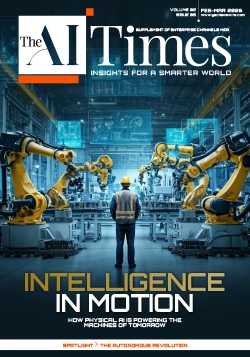While change due to automation can bring some pain in the early stages as teams adapt and learn new processes, it will soon create countless opportunities and areas for collaboration between partners, asserts Khaled AlShami, Director, Solution Consulting, Middle East and Africa, Infor.
EC: Please list your products and solutions that support automation of processes and machines in the region.
We offer many automation solutions designed for specific industries, from manufacturing to logistics and hospitality. While these solutions vary according to the requirements of these different industries, they have one thing in common, they are all built on the Infor OS platform. This is the foundation pillar for the digital enablement of customers to embrace their Industry 4.0 journey with capabilities including process integration, workflows, AI, machine learning, IoT and social collaboration.
This platform essentially puts companies on the track to automation: If you want to automate your processes, such a platform will help you redesign your processes, make them more streamlined, more efficient, and more agile.
How has the pandemic impacted automation of processes in the region?
The impact has been heavy because businesses and companies realise that they cannot continue with their old manual practices, which are all too often inefficient, labour intensive and lead to missed opportunities in terms of gathering, analysing and using data.
This has come into greater focus amid the lockdowns due to Covid-19. We can take paperwork as one simple example. If an organisation relies on paperwork instead of automated digital solutions, they will have immediately faced problems during the lockdown for tasks as simple as getting signatures to sign off projects. Organisations can now see that embracing digital and automated processes is not an option, it is a must to remain competitive and in the market.
Please describe the typical journey of an end user organisation while adopting automation of processes and machines.
The journey starts with defining the strategy for the business and deciding where it wants to be in three to five years. This entails looking carefully at the marketplace that they want to position themselves in. The management must ask serious questions such as what are the services that they want to offer to differentiate their company from their competitors.
Once this strategy is defined, then the organisation can start looking at digital enablers and their roadmap. To achieve this, the organisation should work with their technology partner to understand the current market demand and offering required to bring agile solutions to market. For example, the pandemic has proven that retailers who have not adopted ecommerce have suffered during the lockdowns, whereas those that have adapted their by offering ecommerce solutions have been able to continue serving customers by taking orders online and delivering to the doorstep.
It’ all about setting the strategy and your priorities in terms of what you want to achieve most, whether it’s customer experience, supply chain visibility, or asset health and uptime. The important thing is to identify the areas of concern for your business and then you can work with your technology partner on developing a roadmap on digitalising these processes.
What is the role of channel partners and consultants with end users during the process of automation?
Channel partners and consultants play a big role. We believe that the channel ecosystem and advisory alliances have a major responsibility towards their partners and end users in the region, to help them implement their strategies for their digital journey and the processes that need to be revisited in order to become more agile and streamlined.
It related closely to the previous points mentioned earlier. Companies at this stage will need expertise and advisory to help them embrace digitalisation and automation, and just understanding the priorities they need to look at from an economic point of view. For example, if we’re talking about a healthcare provider, they need visibility of their ventilators, PPE equipment, and medicine in order to have proper forecasting to ensure they are maintaining safe levels of items they need to provide patient care. The consultant has an important role in helping their client understand these types of issues.
What are some of the leading segments for automation of processes?
We’re seeing most activity in healthcare, industrial manufacturing, and retail. Amid Covid-19 we’re seeing the importance of automated systems for the remote testing of patients for various ailments, followed by processing and sharing of the results with them. If you’re a healthcare provider without the digital infrastructure to provide your patients with such services, it’s going to be a problem.
In terms of industrial manufacturing, we have seen factories forced to shut down during pandemic, sometimes leading to a shortage of strategic material such as PPE, especially in countries that depend heavily on importing such materials. However, by automating their processes in line in Industry 4.0 practices, factories can operate with fewer people and maintain the supply chain with continuous delivery.
Any final thoughts on the topic of automation in the Middle East?
Automation is here and everyone must embrace it. While change can bring some pain in the early stages as teams adapt and learn new processes, it will soon create countless opportunities and areas for collaboration between partners. For example, supermarkets can collaborate with shippers, couriers and delivery partners to tap demand for home deliveries. With integrated, automated systems, all parties in such a supply chain can win, but all parties must be digitally prepared.

























